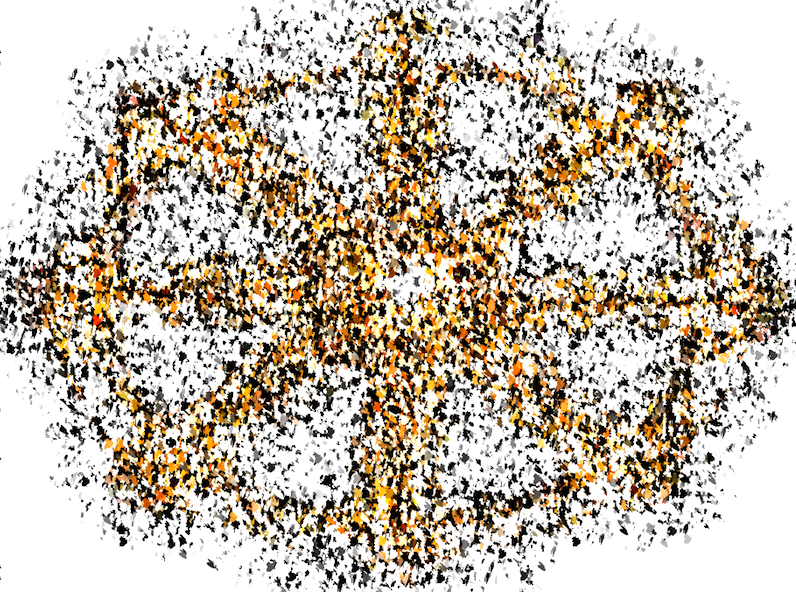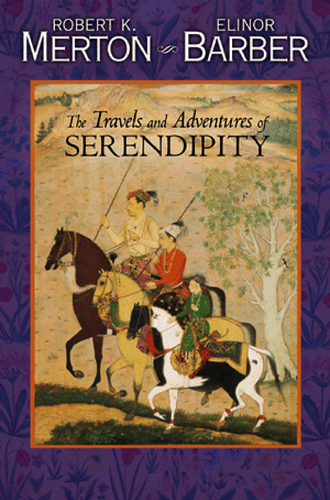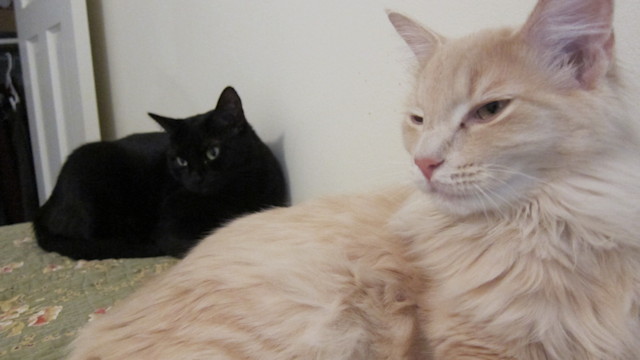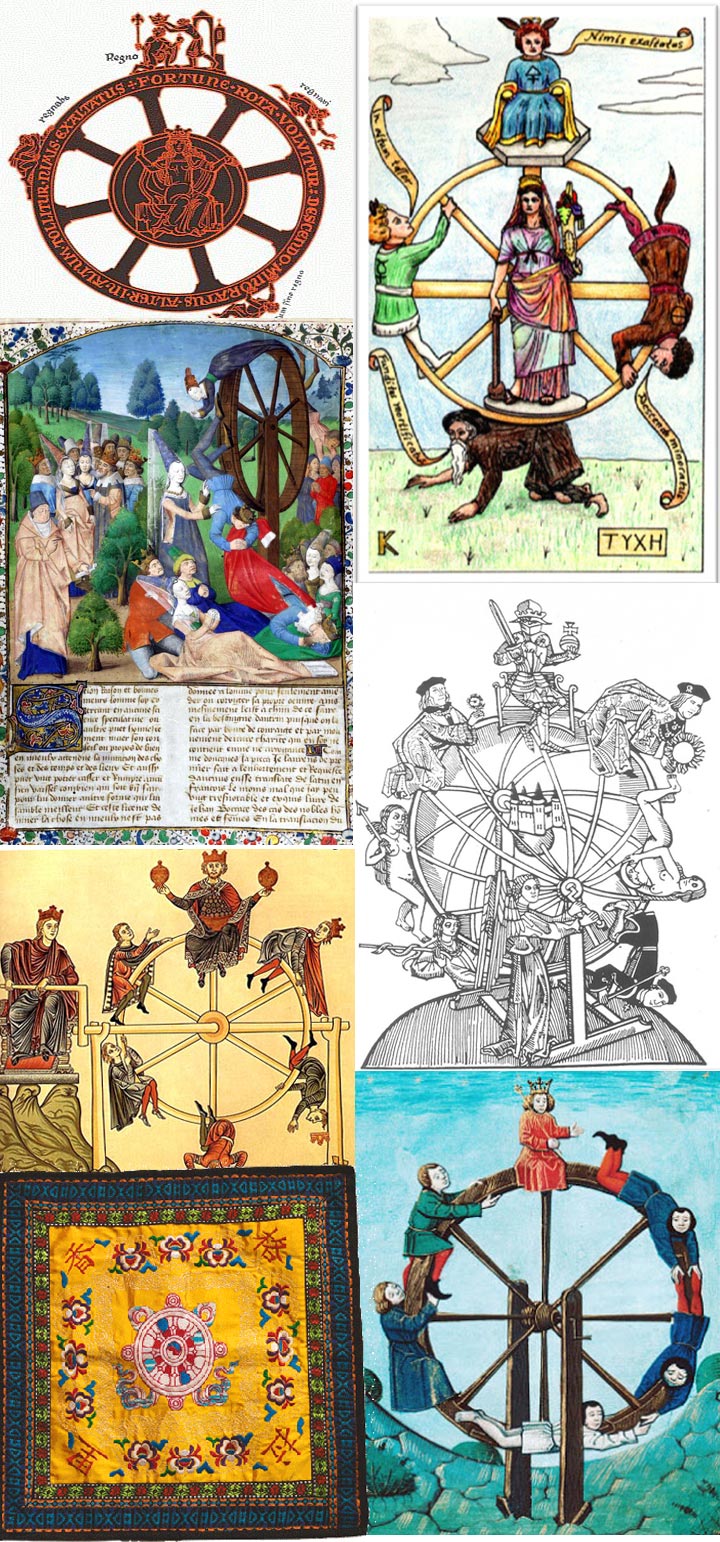
[Dharma as Chance, 2012 S.Calhoun, digital construction]
After we had dinner at Cafe Tandoor, I stood up, put on my coat, and turned around to see right behind me all along hanging on the wall all along was a beautiful, intricate Buddhist tapestry depicting the Dharma Wheel. I chuckled–synchronicity.
Earlier Susan and I had lunch with her cousin and her cousin’s husband–oh, yes at another Cleveland Heights cafe, The Stone Oven–and we spent a couple of animated hours describing chapters in our four different lives. Of course, having lunch together joins those four lives for a moment. I would add as joining those lives ‘again,’ but in truth this lunchtime meeting-up constituted my first extended visit with this lovely couple.
People who know me obviously already understand discussing deeply anything is one of my favorite things to do. I’m not always careful to avoid jawing too intensely about my own interests. There was for a spell something of that in our moment together. Luckily, Susan is expert at reigning me in. Still, I took advantage of the situation to first explain a bit about my research focus, and then deploy my interest as a possible launch pad for discussing what happened in our lives; what’s the story; and, ineluctably and implicitly from this, how did we get to this moment?
Fortuitous events may be unforeseeable but fortuity does not mean uncontrollability of its effects. Paradoxically, people can bring personal influence to bear on the fortuitous character of life (Bandura, 1998). They can make chance happen by pursuing an active life that increases the number and type of fortuitous encounters they will experience. Chance favors the inquisitive and venturesome, who go places, do things, and explore new activities. People also make chance work for them by cultivating their interests, enabling beliefs and competencies. These personal resources enable them to make the most of opportunities that arise unexpectedly. Pasteur put it well when he noted, “Chance favors only the prepared mind.” At a much earlier era, the philosopher Seneca, portrayed seeming serendipity as “Luck is what happens when preparation meets opportunity.” The harder one works the luckier one gets. Even the distinguished lay philosopher, Groucho Marx, insightfully observed that people can influence how they play the hand fortuity deals them, “You have to be in the right place at the right time, but when it comes, you better have something on the ball.” Personal development and engagement in a wide range of activities gives people a hand in shaping the courses their lives take. Albert Bandura (2011) But What About That Gigantic Elephant in the Room?
Fortune strikes. In ‘explaining myself’ I made a bit of a hash of some of my explanations, going meta in the case of defining the word fortuity, and, just getting my synopsis of the plot of The Three Princes of Serendip mixed up with another tale. I shall now recover both elements.
First, let’s lean on the Oxford English Dictionary.
fortuity a chance occurrence.
1. a chance or accidental occurrence
2. fortuitousness
3. chance or accident
f. forte by chance, f. fors chance
1712 Addison Spect. No. 293 ?4 The highest Degree of it [Wisdom] which Man can possess, is by no means equal to fortuitous Events.
Fortune
ad. L. fort?na, related to forti-, fors chance, and ferre to bear.
1. a.1.a Chance, hap, or luck, regarded as a cause of events and changes in men’s affairs. Often (after Latin) personified as a goddess, ‘the power supposed to distribute the lots of life according to her own humour’ (J.); her emblem is a wheel, betokening vicissitude.
fortune (n.)
c.1300, “chance, luck as a force in human affairs,” from Old French fortune “lot, good fortune, misfortune” (12c.), from Latin fortuna “chance, fate, good luck,” from fors (genitive fortis) “chance, luck,” possibly from PIE *bhrtu- and related to base *bher- (1) “to carry” (see infer).
The social history of chance in human life is fascinating. One of the meta aspects is: how the fortune teller delivers advance notice of future fate, and, in doing so, brings the future backward to its beginning. This is a modern way of describing the time-honored effect of having one’s fortune told, and clearly the bridge to having the future foretold is a single step long.
In a modern sense, the notional beginning is radically different than it was way-back-when, say, during the eras during which fortune telling is common to most cultures. (There’s much which could be told about this subject.) The beginning, in the modern (or phenomenological) sense, is at the point the foretelling breaks the heretofore hidden chain of future events. A fortune teller creates a new beginning by bringing to the surface and into the light events in the future. From that moment on one knows their fortune; and, knowing one’s fortune paradoxically changes/cannot change every/anything!

Merton and Barber’s work provides a cornerstone in book length form of the surprisingly small academic literature about serendipity. The literature itself is mostly entered in the fields of social psychology (Bandura, Krantz, et al) and sociology of science (Merton, Barber, J. Austin, et al.)
Wikipedia’s treatment of The Three Princes of Serendip is fine.
“In ancient times there existed in the country of Serendippo, in the Far East, a great and powerful king by the name of Giaffer. He had three sons who were very dear to him. And being a good father and very concerned about their education, he decided that he had to leave them endowed not only with great power, but also with all kinds of virtues of which princes are particularly in need.”
The father searches out the best possible tutors. “And to them he entrusted the training of his sons, with the understanding that the best they could do for him was to teach them in such a way that they could be immediately recognized as his very own.”
When the tutors are pleased with the excellent progress that the three princes make in the arts and sciences they report it to the king. He however still doubts their training and summoning each (of his sons) in turn, declares that he will retire to the contemplative life leaving them as king. Each politely declines, affirming the father’s superior wisdom and fitness to rule.
The king is pleased, but fearing that his sons’ education may have been too sheltered and privileged, feigns anger at them for refusing the throne and sends them away from the land.
The lost camel
No sooner do the three princes arrive abroad than they trace clues to identify precisely a camel they have never seen. They conclude that the camel is lame, blind in one eye, missing a tooth, carrying a pregnant woman, and bearing honey on one side and butter on the other. When they later encounter the merchant who has lost the camel, they report their observations to him. He accuses them of stealing the camel and takes them to the Emperor Beramo, where he demands punishment.
Beramo asks how they are able to give such an accurate description of the camel if they have never seen it. It is clear from the princes’ replies that they have used small clues to infer cleverly the nature of the camel.
Grass had been eaten from the side of the road where it was less green, so the princes had inferred that the camel was blind on the other side. Because there were lumps of chewed grass on the road the size of a camel’s tooth, they inferred they had fallen through the gap left by a missing tooth. The tracks showed the prints of only three feet, the fourth being dragged, indicating that the animal was lame. That butter was carried on one side of the camel and honey on the other was evident because ants had been attracted to melted butter on one side of the road and flies to spilled honey on the other.
As for the woman, one of the princes said: “I guessed that the camel must have carried a woman, because I had noticed that near the tracks where the animal had knelt down the imprint of a foot was visible. Because some urine was nearby, I wet my fingers and as a reaction to its odour I felt a sort of carnal concupiscence, which convinced me that the imprint was of a woman’s foot.”
“I guessed that the same woman must have been pregnant,” said another prince, “because I had noticed nearby handprints which were indicative that the woman, being pregnant, had helped herself up with her hands while urinating.”
At this moment a traveller enters the scene to say that he has just found a missing camel wandering in the desert. Beramo spares the lives of the Three Princes, lavishes rich rewards on them and appoints them to be his advisors.
This story is where the word serendipity came from.
Serendipity
[f. Serendip, a former name for Sri Lanka + -ity.
A word coined by Horace Walpole, who says (Let. to Mann, 28 Jan. 1754) that he had formed it upon the title of the fairy-tale ‘The Three Princes of Serendip’, the heroes of which ‘were always making discoveries, by accidents and sagacity, of things they were not in quest of’.]
The faculty of making happy and unexpected discoveries by accident. Also, the fact or an instance of such a discovery. Formerly rare, this word and its derivatives have had wide currency in the 20th century.
I’m reminded of the equivalent story that stands as the counter-factual, Sura 18, “The Cave,” verses 60-82; the adventure of Moses and Khidr. Syed Abu-Ala’ Maududi’s commentary crystalizes the truth (for believers of a certain kind) that serendipity is but a veil.
The story of Khidr and Moses has been related in such a way as to supply the answer to the question of the disbelievers and to give comfort to the Believers as well. The lesson contained in this story is this “You should have full faith in the wisdom of what is happening in the Divine Factory in accordance with the will of Allah. As the reality is hidden from you, you are at a loss to understand the wisdom of what is happening, and sometimes if it appears that things are going against you, you cry out, ‘How and why has this happened’. The fact is that if the curtain be removed from the “unseen”, you would yourselves come to know that what is happening here is for the best. Even if some times it appears that something is going against you, you will see that in the end it also produces some good results for you.
 Kizzy and Sonny. Kizzy (from Kismet) was a stray kitten that found her way to our back door. I would guess our back door is the best back door for a stray to come up to! Sonny’s story is not dissimilar. While visiting the veterinarian with our two older cats, we noticed a kitten on the counter in the waiting area. Hard to miss! We learned somebody had left three kittens in a box in the parking lot the day before. With that the aid plucked a bluff colored kitten out of a waste basket full of shredded paper, and told us, “This one is spoken for!” Soon enough he was spoken for, and so Sonny comes home, learns to fly, and, becomes the central character in yet another story of serendipity.
Kizzy and Sonny. Kizzy (from Kismet) was a stray kitten that found her way to our back door. I would guess our back door is the best back door for a stray to come up to! Sonny’s story is not dissimilar. While visiting the veterinarian with our two older cats, we noticed a kitten on the counter in the waiting area. Hard to miss! We learned somebody had left three kittens in a box in the parking lot the day before. With that the aid plucked a bluff colored kitten out of a waste basket full of shredded paper, and told us, “This one is spoken for!” Soon enough he was spoken for, and so Sonny comes home, learns to fly, and, becomes the central character in yet another story of serendipity.
Kismet
(Turkish from Arab., qisma, ‘share, portion’).
The allocation of whatever occurs, hence the acceptance in Islam that God determines all things: see QADAR.
fate. XIX. — Turk. — Arab. (Pers.) ?ismat portion, fate, f. ?asama divide, apportion.
kismet
fate, destiny. The word comes (in the early 19th century, via Turkish) from Arabic ?ismat ‘division, portion, lot’, from ?asama ‘to divide’.
.

Explaining my research is dull compared with eliciting person’s recollections of decisive serendipities in their own life. Yesterday I surely made the set-up a bit too complicated, yet we got the meat of the inquiry soon enough. As it always happens, whether or not I am informally or formally documenting these recollections, the recounting brings to the light of day spectacular, decisive chance events.
(This inverts the fortune teller’s strategy!)
Yesterday I learned of a decisive: lark road trip passing a corporate sign reminding the ‘subjects’ of a past employer and so providing the spark to investigate job opportunities–somewhere nearby the sign itself–and then subjects are accelerated through a hiring process–as in: hired on the spot.
This led me to remark, “It’s good to keep an out for the big “W” sign, the W standing for wisdom.”
Several sources for further exploration:
1. Explorations of Fortuitous Determinents of Life Paths
Albert Bandura (1998) A Comment in response to:
2. Taming Chance – Social Science & Everyday Narratives
David L. Krantz (1998)
published in Psychological Inquiry
3. Social Cognitive Theory: An Agentic Perspective
Albert Bandura (2001)
4. The Structure of Serendipity
M. DeRond (2005)
Books:
Chase, Chance, and Creativity: The Lucky Art of Novelty
James H. Austin
Luck: The Brilliant Randomness Of Everyday Life
Nicholas Rescher
Serendip at Bryn Mawr (my late mother’s alma mater-go figure)
The structure of what I term constructive fortuity has not been worked out in any robust way, to this date. In noting this, it is also true that the popular literature on serendipity is mostly a literature about luck. It has grown exponentially over the last several years. Such books tend to mystify the subject matter as much as clarify it.
My own musings and reports are always attached to this item here on the blog. Strategic Serendipity.
(It’s not a goal yet, but I would like to help derive a structural model from the qualitative reports–perhaps beginning with a taxonomy of constructive/structural elements, with these given to explicate dynamics such as micro and macro cruxes, orders of contingency, and other stuff–and not ending with formalizing the model because mathematicizing it is way beyond my abilities.)

